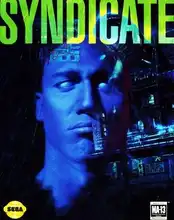The future isn't always bright, is it? Sometimes it's a rain-slicked street lit by flickering neon signs, corporations pulling the strings, and technology blurring the lines between human and machine. That's the world of Cyberpunk games, a genre that has captivated us for decades, from its tabletop RPG roots to massive modern blockbusters.
While that recent big-budget release brought the genre back into the mainstream spotlight, the foundations of digital cyberpunk were laid long ago by some truly groundbreaking titles. For us retro enthusiasts, these aren't just old games; they're time capsules offering a glimpse into how developers first grappled with these complex, stylish themes.
Let's jack in and take a nostalgic trip through some of the most influential classic cyberpunk games that helped define what this genre means to gamers.
The Pioneers: Early Dives into the Digital Underworld
Before ray tracing and open worlds, developers were experimenting with limited pixels and disk space to build these dystopian futures.
Snatcher (1988)
Konami and Hideo Kojima delivered this graphic adventure gem early on. Heavily inspired by Blade Runner and Akira, Snatcher threw players into Neo Kobe City, a futuristic metropolis dealing with terrifying bio-mechanical creatures called "Snatchers" who murder humans and take their place. It was dark, moody, and pushed boundaries with its mature themes and anime-inspired visuals on platforms like the PC-88, MSX2, and later CD-ROM systems. A true early classic.
Syndicate (1993)
Bullfrog Productions gave us a different perspective with Syndicate. This isometric real-time strategy game put you in charge of a corporation's cyborg agents. Your goal? Global domination through persuasion, assassination, and good old-fashioned firepower. It perfectly captured the corporate coldness and technological manipulation central to cyberpunk, offering a detached, strategic view of the genre's often grim world. Running this in DOSBox still feels incredibly cool.
Beneath A Steel Sky (1994)
Revolution Software's point-and-click adventure is a fan favorite for a reason. Set in a dystopian Australia, you play as Robert Foster, stranded in a vast, oppressive city with his robot companion, Joey. The game is a masterclass in world-building and storytelling, tackling themes of environmental collapse, corporate control, and artificial intelligence with wit and charm, thanks in part to art by comic legend Dave Gibbons. The best part? It was famously released as freeware years ago and is readily available on GOG.com and the Internet Archive, often bundled with emulators!
System Shock (1994)
LookingGlass Technologies didn't just make a great game; they essentially invented the "immersive sim" genre while doing it. System Shock blended first-person shooting, RPG elements, and horror on a derelict space station taken over by the terrifying rogue AI, SHODAN. It brought cyberpunk themes like human augmentation and technological hubris into a visceral, interactive environment, influencing countless games that followed, including Deus Ex.
The Genre Matures: Deeper Worlds, Complex Choices
As technology advanced, so did the complexity and depth of Cyberpunk game narratives and mechanics.
Blade Runner (1997)
Westwood Studios created a point-and-click adventure that runs parallel to the iconic film, featuring its own story, characters, and thirteen possible endings. Playing as rookie Blade Runner Ray McCoy, you hunt replicants in a stunningly realized, rain-drenched Los Angeles. The game captured the film's atmosphere perfectly and is a fantastic example of how to adapt a beloved property while telling an original story. Finding a working copy used to be tough, but GOG.com came to the rescue!
Hell: A Cyberpunk Thriller (1995)
Okay, this one's a bit weird, but wonderfully so. This point-and-click adventure from the mid-90s mashed up cyberpunk sci-fi with actual supernatural horror elements and featured voice work from actors like Dennis Hopper. Set in a future where a digital plague called "Acheron" is turning people into demons, it was a unique, if sometimes clunky, take on the genre. A fascinating curio for the truly adventurous retro gamer.
Rise Of The Dragon (1990)
Dynamix and Sierra On-Line delivered this ambitious third-person adventure set in a futuristic Los Angeles. You play as private investigator William "Blade" Hunter investigating a deadly new designer drug causing mutations. It incorporated elements like real-time clocks affecting events and action sequences alongside traditional adventure puzzles, showcasing an early attempt to blend genres within the cyberpunk framework.
Shadowrun (Various, 1990s)
Based on the hugely popular tabletop RPG, the Shadowrun video games (especially the SNES and Sega Genesis titles) stood out by blending classic cyberpunk tropes – megacorporations, hackers, street samurai – with high fantasy elements like magic, elves, and trolls. This unique fusion created a distinct world that remains beloved and has seen successful modern revivals.
Deus Ex (2000)
Okay, maybe not "retro" depending on your definition, but Deus Ex is undeniably a cornerstone of modern cyberpunk gaming and a direct descendant of titles like System Shock. Ion Storm's masterpiece combined RPG depth, stealth, action, and multiple paths to solve problems in a vast conspiracy narrative. Its focus on human augmentation, player choice, and a richly detailed dystopian world set a new standard and heavily influenced games like, yes, Cyberpunk 2077. It's a must-play for anyone interested in the genre's evolution.
Why These Classics Still Matter
These games, despite their age, offer more than just a nostalgia trip. They represent the foundational ideas and aesthetics of digital cyberpunk. They show how developers experimented with storytelling, mechanics, and world design to bring this complex genre to life. Playing them today highlights their innovative spirit and provides context for the Cyberpunk games we play now.
Finding Your Way Back to the Future
Curious to try some of these out? Many classic PC cyberpunk titles are readily available digitally on platforms like GOG.com, often updated to run on modern systems. For really old DOS games, the Internet Archive has a vast collection playable right in your browser, though performance can vary. And for PC enthusiasts, mastering DOSBox is key to getting many of these old gems running smoothly.
Frequently Asked Questions About Cyberpunk Games
- What defines a Cyberpunk game? Generally, they are set in a near-future dystopian society characterized by advanced technology (especially cybernetics and computing) alongside societal breakdown or low-life conditions. Themes often include corporate control, artificial intelligence, human augmentation, and the blurring lines between humanity and technology.
- Are all Cyberpunk games RPGs? No, the genre spans many types! While RPGs like Deus Ex and Cyberpunk 2077 are prominent, there are also adventure games (Snatcher, Beneath A Steel Sky, Blade Runner), strategy games (Syndicate), shooters (System Shock), and more.
- Are classic Cyberpunk games still worth playing? Absolutely! They offer unique perspectives, often challenging gameplay, and a deep dive into the genre's roots. Many have fantastic stories and atmospheric worlds that hold up.
- Where did the term "Cyberpunk" come from? The term was popularized by author Bruce Bethke's 1983 short story "Cyberpunk," and further cemented by writers like William Gibson (Neuromancer) and Neal Stephenson (Snow Crash).
The Legacy Lives On
The gritty, high-tech, low-life world of cyberpunk continues to inspire. Modern Cyberpunk games owe a huge debt to these earlier pioneers who dared to explore these complex futures with limited tools. So, whether you're exploring Night City or revisiting Neo Kobe, take a moment to appreciate the classics that built this incredible genre, pixel by pixel.

